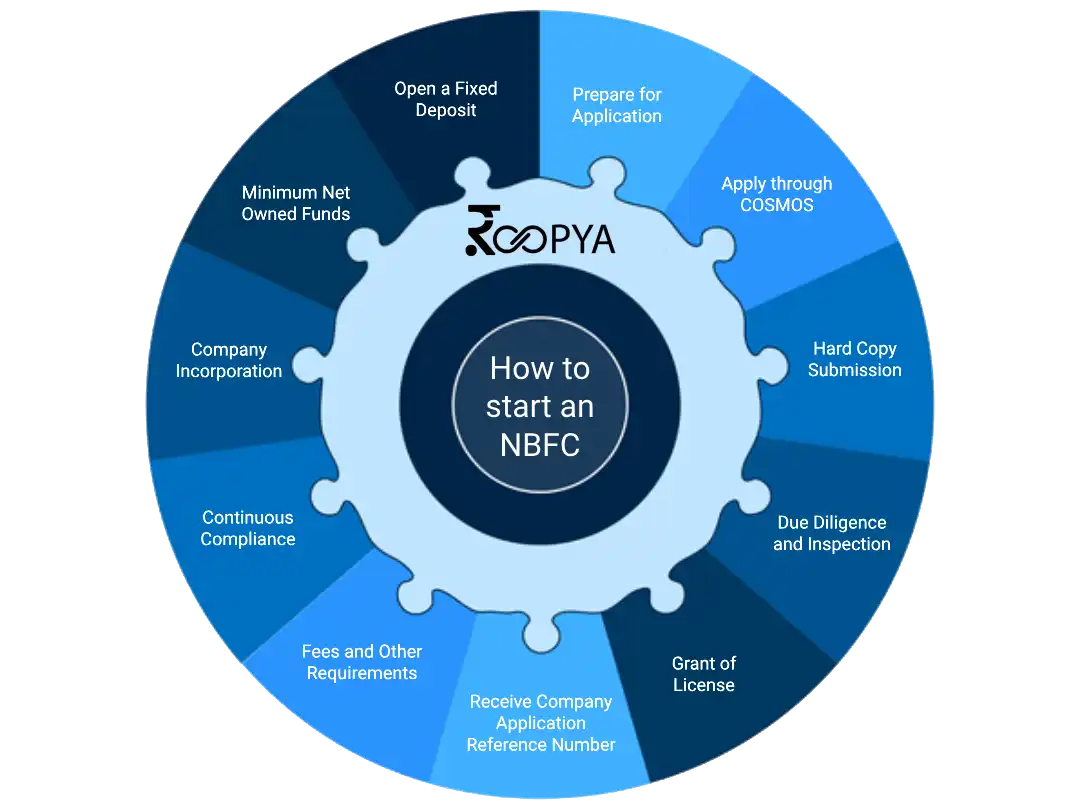| Primary Activity |
Financing of physical assets supporting productive/economic activity (e.g., automobiles, tractors, lathe machines). |
Dealing in investments (shares, stocks, bonds) without accepting public deposits. |
Providing finance for any activity other than its own (excluding AFCs and ICs). |
Providing credit facilities or loans to companies engaged in the development of infrastructure. |
Providing small loans to the underserved or low-income population. |
Providing finance for housing. |
| Minimum Net Owned Funds (NOF) |
₹2 crore |
₹2 crore |
₹2 crore |
₹300 crore |
₹5 crore for MFIs wanting to qualify for NBFC-MFI status (₹2 crore otherwise). |
The National Housing Bank (NHB) specifies NOF requirements, generally ₹10 crore. |
| Regulatory Body |
Reserve Bank of India (RBI) |
Reserve Bank of India (RBI) |
Reserve Bank of India (RBI) |
Reserve Bank of India (RBI) |
Reserve Bank of India (RBI) |
Primarily regulated by the National Housing Bank (NHB), though it must also follow certain RBI guidelines. |
| Deposit Acceptance |
Cannot accept public deposits unless registered and specifically allowed by the RBI. |
Cannot accept public deposits. |
Cannot accept public deposits unless registered and specifically allowed by the RBI. |
Cannot accept public deposits. |
Cannot accept public deposits. |
Can accept public deposits subject to regulations by the NHB. |
| Liquidity Ratio Requirements |
Subject to RBI guidelines. |
Subject to RBI guidelines. |
Subject to RBI guidelines. |
Must maintain a minimum of 15% of its net demand and time liabilities in liquid assets. |
Subject to RBI guidelines, including maintaining a percentage of net assets in liquid form. |
Must adhere to liquidity ratio requirements as prescribed by the NHB. |
| Credit Rating Requirement |
Not mandatory, but beneficial for raising funds. |
Not mandatory, but beneficial for raising funds. |
Not mandatory, but beneficial for raising funds. |
Must have a minimum credit rating of ‘A’ or equivalent. |
Not mandatory, but beneficial for raising funds and regulatory compliance. |
Credit rating may be required for public deposit acceptance and is regulated by the NHB. |
| Capital Adequacy Ratio |
As prescribed by the RBI, typically around 15%. |
As prescribed by the RBI. |
As prescribed by the RBI, typically around 15%. |
Required to maintain a minimum capital adequacy ratio of 15% of its risk-weighted assets. |
Required to maintain a capital to risk-weighted assets ratio (CRAR) of 15%. |
NHB prescribes the capital adequacy requirements, usually around 12-15%. |
| Focus Sector |
Industrial, commercial, or consumer activities. |
Investment in securities and other financial assets. |
Broad, including personal loans, business loans, etc. |
Infrastructure projects like highways, power, telecom, railways, etc. |
Small-scale, unbanked, and underprivileged segments of society. |
Primarily residential housing finance, but may also include commercial housing. |
| Special Regulatory Provisions |
Must adhere to RBI guidelines specific to asset financing. |
Must adhere to RBI guidelines for investment companies. |
Subject to RBI guidelines specific to loan companies. |
Subject to higher scrutiny and specific regulations due to the strategic importance of infrastructure financing. |
Stringent regulations regarding loan recovery practices, interest rates, and operational methodology. |
Regulated by the NHB with specific guidelines on funding practices, loan disbursement, and recovery processes. |




